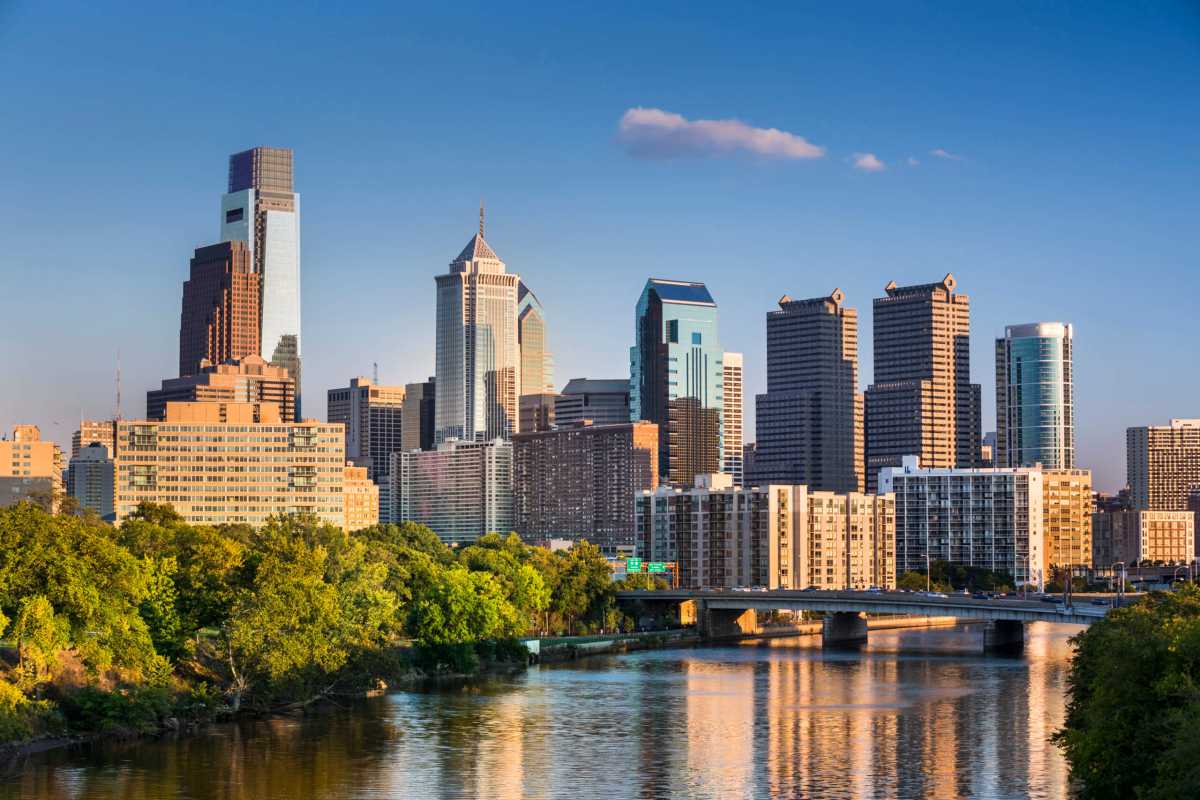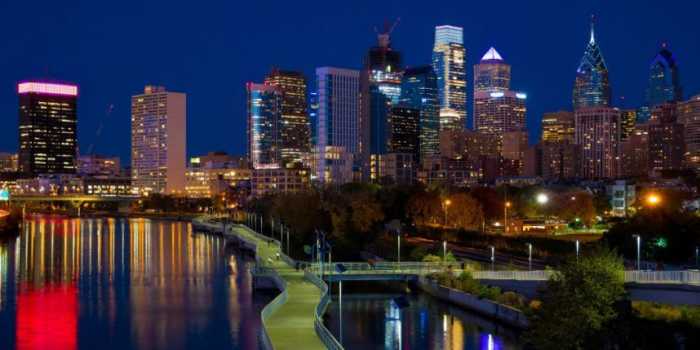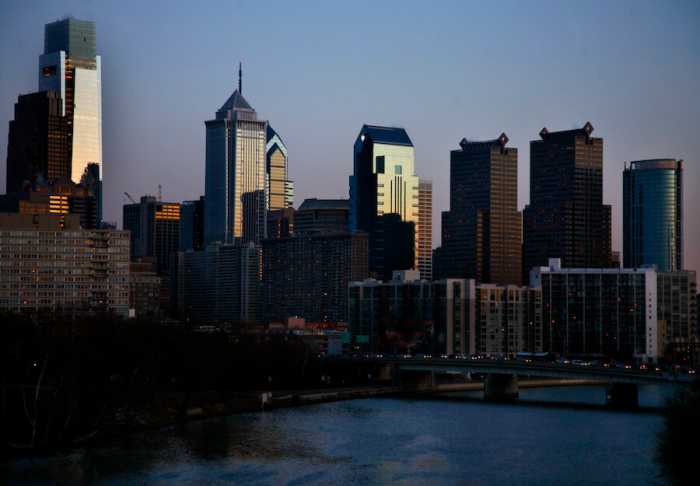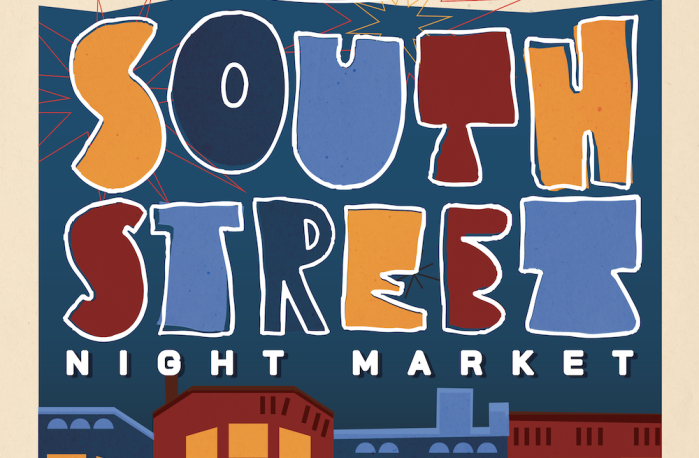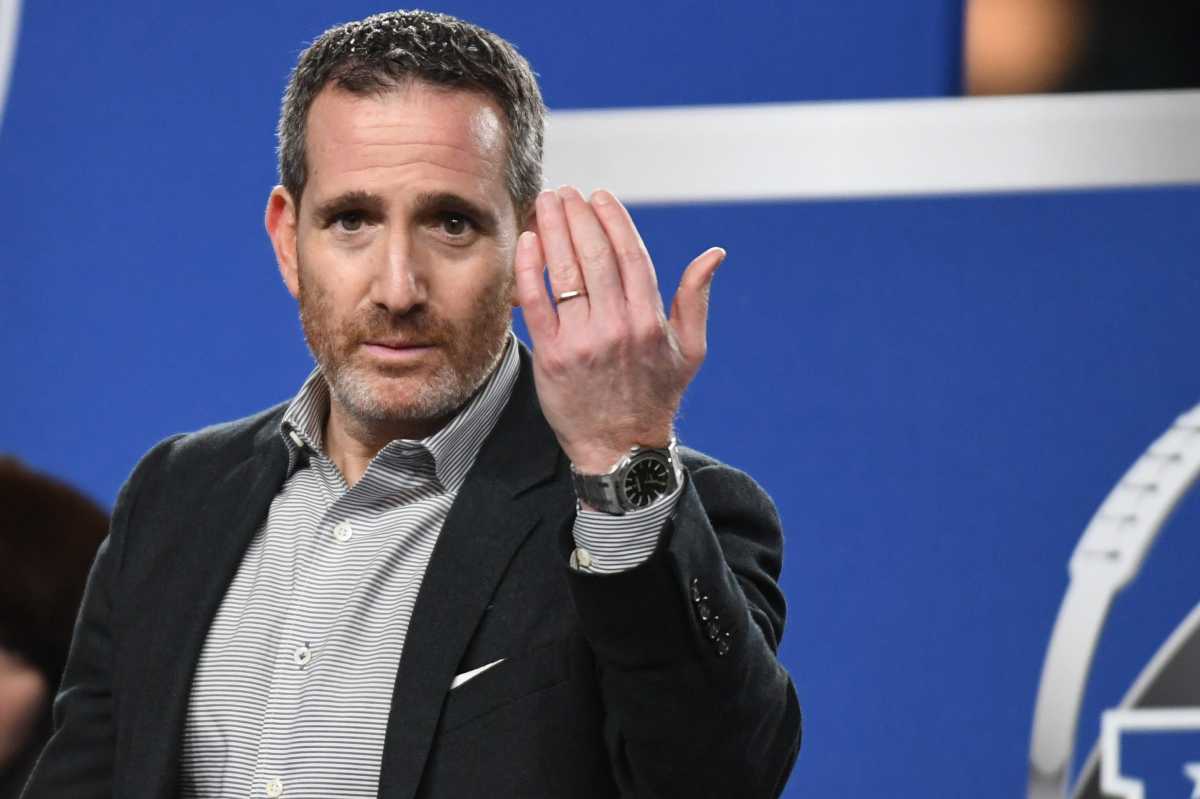A new report reveals deep challenges and racial disparities facing Philadelphia’s economy, as businesses struggle to rebound from coronavirus-related lockdowns and city leaders reexamine equity concerns following mass protests.
Philadelphia lags significantly behind four other East Coast cities when it comes to business activity, and racial disparities are also more pronounced here than elsewhere, according to the study.
It was released earlier this month by the Center City District and Central Philadelphia Development Corporation, two groups representing downtown businesses, and based on 2018 census data.
The report uses a metric called “business density,” which calculates the number of businesses for every 1,000 residents. It compares the city to Boston, New York, Washington, D.C. and Atlanta.
For every 1,000 Black residents, there are 1.8 Black-owned businesses in the city, according to the study. In contrast, the ratio is 2.5 in Boston, 3.4 in New York, 4.7 in Atlanta and 5 in D.C. Philadelphia’s number was also 41% below the national average.
In addition, Black-owned firms made up only 14.6% of the city’s total business density, above only Boston, and average yearly revenue for those businesses was $854,000, the lowest of the cities.
Paul Levy, the CCD’s president and CEO, said he was not shocked that racial disparities exist—African Americans have historically had more difficulty starting new businesses—but he was surprised at how far the city trailed its peers.
“Of all the five cities we looked at, Philadelphia basically came in last,” he told Metro.
And not just for minority-lead businesses. Philadelphia was the only city in the study with a business density (12.1%) below the national number (16.8%).
Atlanta led the way with 24.6%; New York registered at 22.4%; Boston came in at 18.7%; and D.C. had 17.1%, the report said.
Philadelphia also had fewer jobs and less people working full-time, according to the study. Just over 40% of city residents 16 and older did not work at all in 2017, the highest among the cities.
It’s a two-part problem, Levy said. Black-owned enterprises face structural racism, and all business owners face a less-than-ideal economic climate.
The analysis did not make a definitive determination on the cause of the city’s business woes, but it did offer some potential contributing factors.
Among the top reasons is that Philadelphia’s economy is decentralized, unlike the other cities, with more companies focused in the suburbs. The city’s business density is 30% below the regional total, the study said.
Levy pointed to the city’s tax policies as a reason why businesses may be clustered in the ‘burbs. Philadelphia’s wage tax is much higher than the surrounding area, and business taxes, the report said, add a 20% to 50% premium on firms operating in the city.
Municipal leaders have attempted to gradually reduce some of those taxes in recent years; however, in the midst of a $750 million pandemic-related budget hole, planned cuts to the business and resident wage taxes were frozen.
Wage taxes on commuters were increased, and parking taxes and a fee for commercial trash removal were also bumped up to help cover the shortfall.
Those changes accompanied dramatic reductions in spending.
“I think the fact that we are so dependent on wage and business taxes and sales tax meant that the cuts the city had to make are much more severe,” Levy said, adding that some cities, like Boston, rely more on real estate taxes.
Other cities, including Boston and D.C., have invested significantly more in small and minority business development programs. This year, D.C. will spend $6.60 per capita on those initiatives compared to Philadelphia’s 60 cents, according to the report.
One concern Levy has heard repeatedly is how Black entrepreneurs in the city have trouble securing seed money to get their companies up and running, though it’s not clear how Philadelphia measures up to the other regions in that regard.
Another issue is the city’s slow economic growth. Following the 2008 recession, employment grew 1.2%, among the smallest increases of all major U.S. cities.
It’s no secret that COVID-19 has taken its toll on Philadelphia’s business community.
Levy said CCD does not have concrete numbers; however, the study says, the city lost nearly 80,000 jobs between February and June and the unemployment rate jumped from 6% to 17.7%.
He said he is optimistic that the city will have a strong recovery once a vaccine is rolled out, but more needs to be done.
“The COVID challenge is huge, enormous and unprecedented, but once we get over that, going back to the status quo is not going to be enough,” Levy said.
“The message of this report is you can’t just count on a strong recovery to fix problems that existed before the COVID virus,” he added. “We need to rebound, and we need to address these disparities.”



